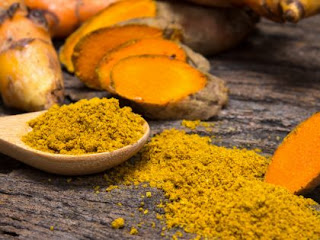CURCUMIN OF TURMERIC A HOUSE HOLD SPICE IMPROVES MOOD AND MEMORY
PROF .DRRAM,HIV /AIDS,HEPATITIS ,SEX DISEASES & WEAKNESS expert,New Delhi,India, profdrram@gmail.com,+917838059592,+919832025033,ON WHATSAPP
Consumption of curcumin in Turmeric or Haldi a common spice we use to prepare our food improves the memory and mood of people with mild, age-related memory loss, according to a new study by the University of California, Los Angeles.The research, which has been published the American Journal of Geriatric Psychiatry, examined the effects of an easily absorbed curcumin supplement on memory performance in people without dementia, as well as curcumin’s impact on the microscopic plaques and tangles in the brains of people with Alzheimer’s.
Found in turmeric, curcumin has previously been shown to have anti-inflammatory and antioxidant properties in lab studies. It also has been suggested as a possible reason that senior citizens in India, where curcumin is a dietary staple, have a lower prevalence of Alzheimer’s and better cognitive performance.The study’s first author, Gary Small, said: ‘Exactly how curcumin exerts its effects is not certain, but it may be due to its ability to reduce brain inflammation, which has been linked to both Alzheimer’s disease and major depression.’
The double-blind, placebo-controlled study involved 40 adults between the ages of 50 and 90 who had mild memory complaints. Participants were randomly assigned to receive either a placebo or 90 milligrams of curcumin twice a day for 18 months.All 40 subjects received standardised cognitive assessments at the start of the study and at six-month intervals, and monitoring of curcumin levels in their blood at the start of the study and after 18 months. Thirty of the volunteers underwent PET scans, to determine the levels of amyloid and tau in their brains at the start of the study and after 18 months.
 The people who took curcumin experienced significant improvements in their memory and attention abilities, while the subjects who received placebo did not. In memory tests, the people taking curcumin improved by 28 per cent over the 18 months. Those taking curcumin also had mild improvements in mood, and their brain PET scans showed significantly less amyloid and tau signals in the amygdala and hypothalamus than those who took placebos.
The people who took curcumin experienced significant improvements in their memory and attention abilities, while the subjects who received placebo did not. In memory tests, the people taking curcumin improved by 28 per cent over the 18 months. Those taking curcumin also had mild improvements in mood, and their brain PET scans showed significantly less amyloid and tau signals in the amygdala and hypothalamus than those who took placebos.
The researchers plan to conduct a follow-up study with a larger number of people. That study will include some people with mild depression so the scientists can explore whether curcumin also has antidepressant effects. The larger sample also would allow them to analyze whether curcumin’s memory-enhancing effects vary according to people’s genetic risk for Alzheimer’s, their age or the extent of their cognitive problems.
Small said: ‘These results suggest that taking this relatively safe form of curcumin could provide meaningful cognitive benefits over the years.’
- Kidney stones universally present hazard in north india,dillution by water prevent it
- Steroid and placebo effect equally for mild persisting asthma with low sputum eosinophils
- Government wants to fix public healthcare staff shortages with ayush docs: will it work?
- Plea in hc for payment of salaries of edmc, north mcd teachers and doctors
- 7 indian pharma companies named in us lawsuit over inflating generic drug prices
- Woman in up dies after explosion in her mouth during treatment,what is diagnosis?
- Woman in up dies after explosion in her mouth during treatment,what is diagnosis?
- Woman in up dies after explosion in her mouth during treatment,what is diagnosis?
- Air pollution ! mothers organising rally in london,anaesthetist choosing gas,will india follow?
- Cardiac arrest is always not sudden as understood -a study

 Comments (
Comments ( Category (
Category ( Views (
Views (